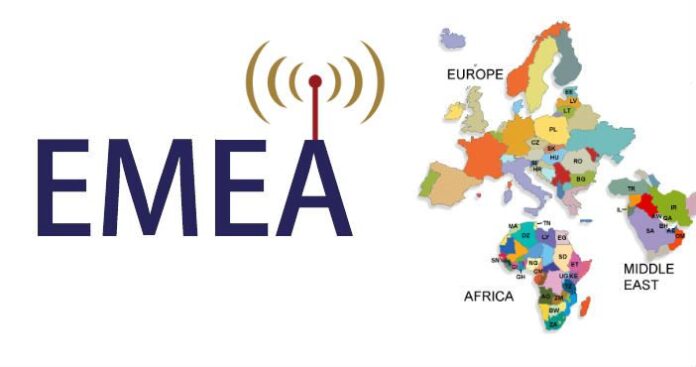Claudia Bacco, Managing Director – EMEA for RCR Wireless News, has spent her entire career in the telecom, IT and security industries. Having experience as an operator, software and hardware vendor and a well-known industry analyst, she has many opinions on the market. She’ll be sharing those opinions along with ongoing trend analysis for RCR Wireless News.
With the onslaught of devices requiring secure data connections and the growing amount of actual data to be stored, analyzed and acted upon, there will likely be some new market entrants or new business models for existing players. Gartner projects the “Internet of Things” market to have 26 billion connected devices by the year 2020. This rapid growth from .9 billion in 2009 will inevitably bring about changes to existing operator business models and open new doors for value-added services.
Türk Telekom International is the first of two wholesale operators I spoke to about this topic. TTI is 100% owned by Türk Telekom and acts as its international business unit handling all international data and wholesale voice business functions. The company’s international 40,000 km fiber network includes 19 countries in Central and Eastern Europe, Turkey, Middle East and the Caucasus.
It’s more then just the network – what about the data centers? This is where it gets interesting for IoT. Today, TTI’s main data center location is in Hungary, but it has the ability to offer connectivity plus collocated hosting in 50 data centers across Europe. As IoT proliferates, it’s not feasible for all the data to be managed in a centralized cloud model. The cloud/data center must migrate to the edge of the network. I’ve mentioned this before in the context of connected cars, but continue to hear it discussed again and again in the IoT space. Consider the content delivery model that has come to pass over the years. First there was a huge CDN in the sky, which migrated to edge CDN solutions, and now there are companies launching CDN functionality in mobile base stations. As the content has had to migrate closer to the customer to provide the expected level of performance, it will be the same with big data and the ability to capture, monitor and react to this data in a timely manner via cloud functionality closer to the end user/device.
As traditional revenues for operators in Central Europe continue to come under competitive and pricing pressures there is a need to find new revenue streams. Companies not familiar with ICT functionality will now enter the M2M/IoT market, providing an opportunity for ICT companies to help them through this transition. Enter TTI.
TTI spoke with me about its strategic intent to develop services in 2015 aimed at the enterprise market. A bold move for a company not known to this market. However, it has an interesting plan to differentiate itself in this category – serving untouched markets. Istanbul is an interesting place to support such a strategy. For those who have not been there, Istanbul is where Europe and Asia meet. The city spans the border of both continents. The opportunity for a data center hub in this location is a link between the East and the West in a neutral location that can service countries untouched by more sophisticated ICT services, such as Iraq and Iran. Over time, far-reaching locations can be served through virtual hosting solutions and managed servers.
Providing value beyond the data center is no small feat and will require not only external market education as to TTI’s capabilities, but a shift in the mindset and skill set from a wholesale operator to an enterprise service provider. Products for this market need to have a more “off the shelf” nature and require less customization to be successful. I support this vision as a bold step toward not being relegated to a “dumb pipe” role in the future.
BICS is the second wholesale operator I spoke with. A division of Belgacom, BICS works with communications service providers globally. Via its extended network and 100 points of presence, it enables more than 700 communication service providers with a range of interoperability and interconnect services. More than half of those customers are mobile operators.
So what about 4G and data roaming? The company is already working with about 150 LTE network providers globally to provide roaming capabilities – in Asia and North America at first, but now in all continents. The growth of LTE signalling requirements is doubling almost monthly, specifically a 10x growth in Europe in the last year alone. Roaming on LTE is a reality and operators are looking for help defining and launching data roaming services. BICS helps them beyond just providing the interconnectivity. It was a pleasant surprise to see a wholesale operator working to develop marketing campaigns for use by the local operators to support roaming data services. Text message campaigns can be provided by BICS to do just that. Roaming data from these users needs to be available to the local operators for analysis. Via Webvision, BICS provides daily, weekly or monthly statistics with an option to upgrade to its SMART program that provides real-time statistics.
As IoT evolves this all becomes even more complicated. Worldwide connectivity is essential – anytime, anywhere – for IoT to work. The items being connected have the potential to constantly be on the move. It’s not just about managing mobile devices for operators, now nontraditional players enter the mix. Devices need to manage for organizations that don’t actually have their own spectrum. SIM cards, roaming-enabled data connectivity and devices need to be provided to M2M-focused MVNOs as a possibility.
As new business models evolve, I come back to a comment from my article on Friday where I mentioned “services as a service.” Could the wholesale operators be the companies that fill this void in the future? It seems like a possible answer to this need.

